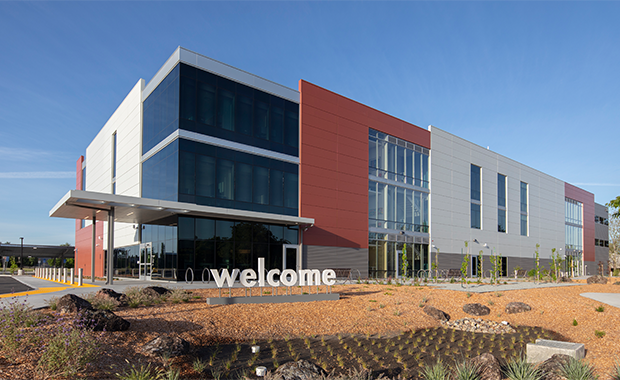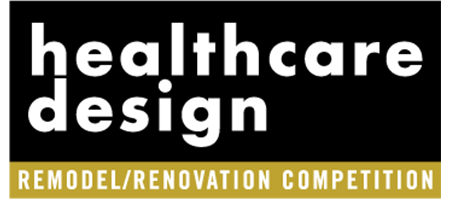Since joining Kaiser Permanente in 2011, Hugh Ramé Hemstreet has been in the driver’s seat of the organization’s decade-long effort to mitigate its contribution to the climate crisis. With engineering degrees from Tulane University and University of California, Berkeley, he’s led several interrelated initiatives, including an aggressive energy efficiency program spanning eight regions and more than 1,000 facilities, all of which culminated in the announcement in fall 2020 that Kaiser Permanente is the first large-scale healthcare system in the U.S. to achieve carbon neutrality. He also chairs Kaiser’s Sustainable Resource Council, which is responsible for consulting with stakeholders in the development of the organization’s Sustainable Resources Strategy, an effort that ensures operational changes are reviewed and evaluated and that technological, financial, and pricing opportunities are identified.
He spearheaded the installation of on-site solar canopies at Kaiser locations where it’s cost effective, resulting in more than 50MW of green power generation. Most recently, he negotiated four 20-year renewable energy off-take agreements totaling 335MW of new “utility scale” wind and solar generation as well as 110 MW of battery storage to mitigate intermittency of those renewable power sources. The combined impact of these on-site and off-site projects allows Kaiser Permanente to generate more renewable energy than the power it consumes from “brown power.”
Looking beyond Kaiser Permanente, Hemstreet is also focused on identifying and promoting opportunities that could result in reducing the energy needs and carbon emissions of all U.S. healthcare facilities, including partnering with the California Commission on demonstration projects for outcome-based ventilation and green microgrids to reduce energy intensity and improve resiliency. While his work continues to influence the way Kaiser Permanente designs and constructs its facilities as well as demonstrates that carbon neutrality is achievable in a large-scale system, Hemstreet believes the past year illustrated the importance of addressing climate change for everyone.
“The health disparities exacerbated by COVID-19 further underscore that protecting the health of our planet and its people can no longer be treated as separate efforts,” he says. “Creating a healthier, more sustainable path forward requires us to address these inseparable issues as one.”
What do you love most about your job? The scale of Kaiser Permanente. For instance, being able to negotiate “utility scale” renewable energy agreements. This demonstrates to the entire industry what’s possible.
What industry challenge do you hope to solve?
Cut in half the potable water use at California hospitals. On-site water reclamation holds the potential to substitute recycled water for much of the potable water that our hospitals currently consume.
Who/what inspires you?
My children. My generation has failed to deal with the climate crisis; I want to demonstrate to them that solutions do exist that will allow their generation to avoid the worst case scenario.
What’s the next major trend you anticipate for healthcare design?
Care at home, which will reduce the acute care footprint per patient.
What did you learn over the past year?
We can rapidly change and adapt, but unfortunately it requires a crisis.












